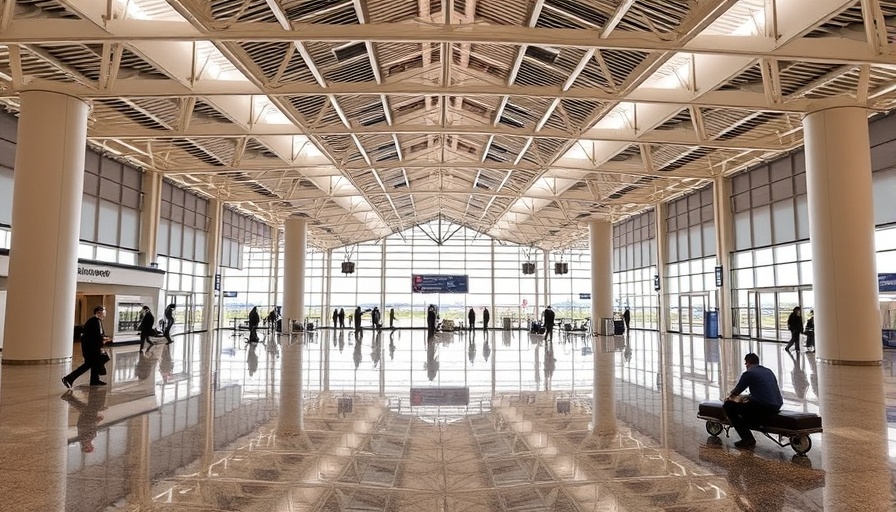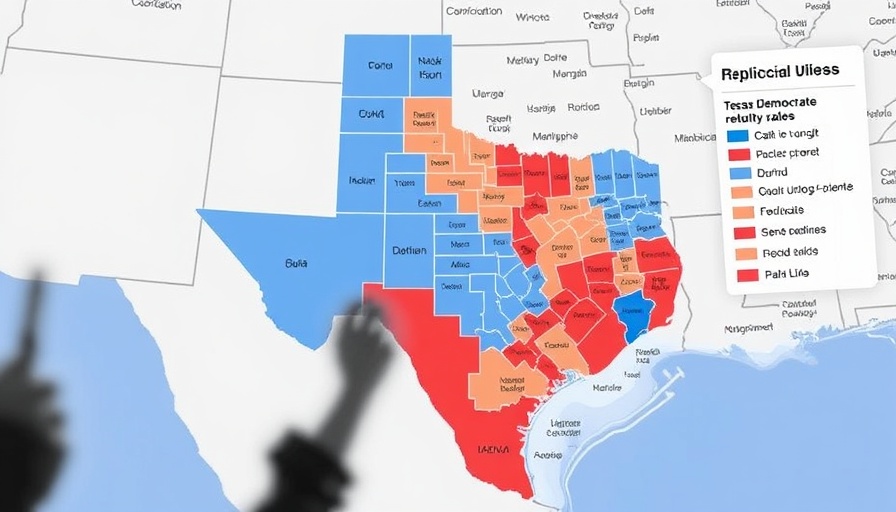
Exciting Developments: DFW Airport's Game-Changing Terminal F
American Airlines and Dallas-Fort Worth International Airport (DFW) are revolutionizing air travel in North Texas. The announcement of plans to expand Terminal F from 15 to a whopping 31 gates is a powerful statement of growth, reflecting a combined investment of approximately $4 billion.
The Bigger Picture: Why This Matters
This expansion isn't merely about more gates; it's about anticipating the needs of a rapidly growing region. With DFW already recognized as an economic engine, the upgraded terminal is set to bolster not only air travel but also the local economy. According to the DFW Board of Directors, this investment is critical for long-term sustainability and is designed to enhance operational efficiencies, particularly for American Airlines, which will maintain exclusive rights to all gates at Terminal F.
Connecting the Dots: Understanding the Passenger Experience
In his announcement, American Airlines CEO Robert Isom highlighted the significance of a unified terminal for passenger connectivity. Roughly 60% of DFW's traffic consists of connecting passengers; therefore, making their experience smoother is paramount. The new design includes a more accessible layout with a dedicated check-in area that wasn't part of the original plans. This shift not only streamlines travel but also enhances customer satisfaction, ensuring that passengers have a memorable journey.
Anticipating Growth: DFW's Future as an Airline Hub
With DFW’s growth trajectory, plans to become the largest airline hub globally are becoming more tangible. The airport has already established its importance in the airline network, and expanding Terminal F reinforces that status. American Airlines' commitment to this new terminal will ensure more direct routes and flight options for travelers, positioning DFW at the forefront of air travel innovation.
Local Impact: Economic Boost for North Texas
While the expansion is significant for travelers, it also holds enormous implications for local businesses and the economy. With a growing number of jobs anticipated in construction and hospitality sectors due to this project, DFW's growth could stimulate economic opportunities for local entrepreneurs and workers alike. Taking into account the new jobs generated from the construction and ensuing airport operations, we can expect substantial positive contributions to the regional economy.
What Lies Ahead: Future Predictions for Air Travel in Texas
The upward trend of travel demand post-pandemic indicates that regions like North Texas will continue to see an influx of tourists and business travelers. With the expansion plans, DFW is aiming to accommodate this surge effectively. By enhancing services and facilities at Terminal F, the airport is not just constructing a building; it’s building for the future of air travel and economic advancement in Texas.
Conclusion: A New Era for DFW Airport
As DFW Airport embarks on this transformative journey with Terminal F, the implications extend far beyond mere infrastructure. It symbolizes growth, opportunity, and a commitment to providing travelers with an elevated experience. The investment in this project serves as a foundation for future expansions and improvements, solidifying DFW’s role as a leading airport in an evolving aviation landscape.
 Add Row
Add Row  Add
Add 




Write A Comment